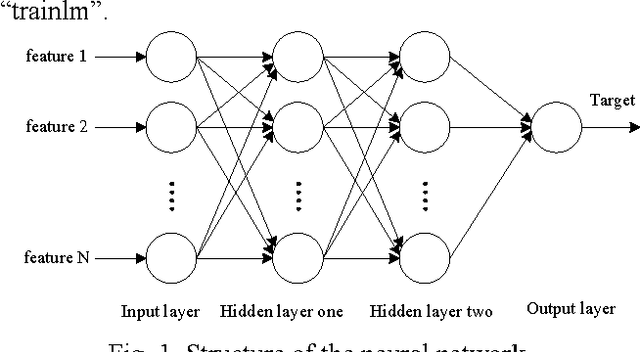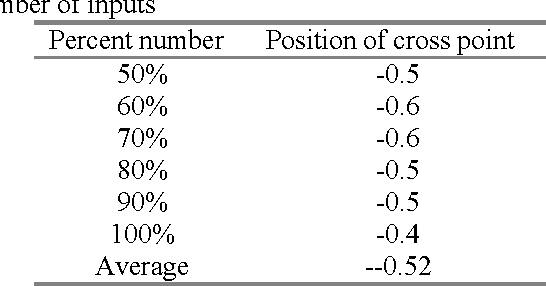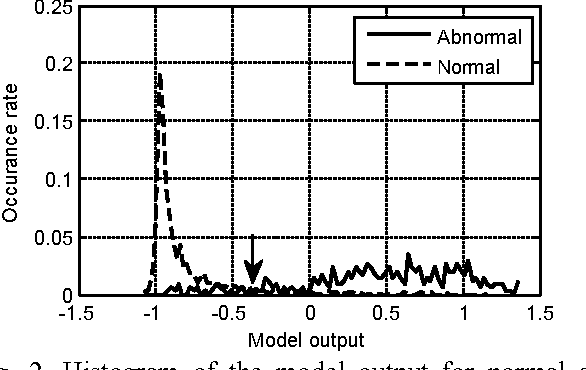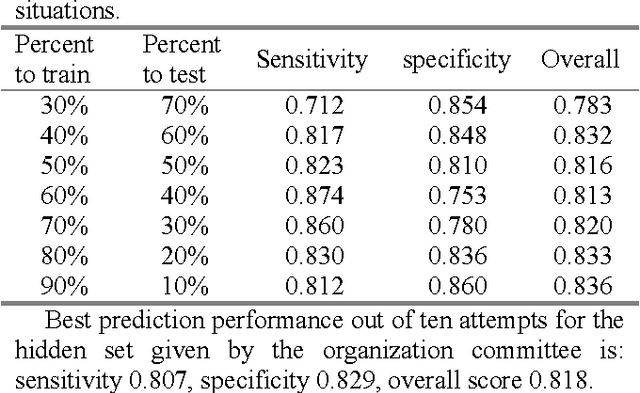Classification of normal/abnormal heart sound recordings based on multi-domain features and back propagation neural network
Paper and Code
Oct 17, 2018



This paper aims to classify a single PCG recording as normal or abnormal for computer-aided diagnosis. The proposed framework for this challenge has four steps: preprocessing, feature extraction, training and validation. In the preprocessing step, a recording is segmented into four states, i.e., the first heart sound, systolic interval, the second heart sound, and diastolic interval by the Springer Segmentation algorithm. In the feature extraction step, the authors extract 324 features from multi-domains to perform classification. A back propagation neural network is used as predication model. The optimal threshold for distinguishing normal and abnormal is determined by the statistics of model output for both normal and abnormal. The performance of the proposed predictor tested by the six training sets is sensitivity 0.812 and specificity 0.860 (overall accuracy is 0.836). However, the performance reduces to sensitivity 0.807 and specificity 0.829 (overall accuracy is 0.818) for the hidden test set.
 Add to Chrome
Add to Chrome Add to Firefox
Add to Firefox Add to Edge
Add to Edge